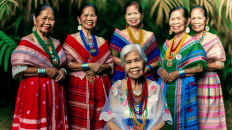The perspectives of Filipino women on age gap relationships with foreigners are multifaceted. Rooted in historical, cultural, and socio-economic backgrounds, these views are neither entirely positive nor entirely negative. Each relationship is unique, and while societal opinions can influence perceptions, the core of any relationship should always be mutual respect and understanding.
Age gap relationships have always been a subject of interest and, at times, controversy. In the context of Filipino culture, with its long history of interactions with foreign nations, this topic takes on unique dimensions. The perspectives of Filipino women on relationships with significantly older foreign partners are shaped by cultural, economic, personal, and even historical factors. This article delves deep into these views, discussing the positive and negative sentiments, as well as the underlying reasons for such attitudes.
1. Historical and Cultural Context of Age Gap Relationships
It is essential to first understand the historical ties between the Philippines and foreign nations. The archipelago was under Spanish rule for over 300 years, followed by American colonization and then the Japanese occupation during World War II. This history has engendered a unique blend of cultures, influencing not just the country’s customs and traditions but also relationship dynamics.
Colonial Mentality: To some extent, the colonial past has left a residue of admiration and, in some cases, an inherent belief that foreign things, including people, are superior. While this mentality has waned over the years, it’s undeniable that some Filipino women still view relationships with foreigners as an elevated status symbol.

2. Socio-Economic Factors
Seeking Stability: The Philippines, being a developing nation, has a significant economic disparity. For some Filipino women, a relationship with a foreigner is seen as an opportunity for a better life, not just for them but also for their families. It’s common for Filipinos to provide financial support to their families, and a foreign partner might offer more financial stability.
Education and Exposure: With the advent of globalization and the internet, more Filipino women are becoming educated and exposed to global cultures. They are increasingly aware of the dynamics in international relationships and are more critical about genuine intentions, regardless of age differences.
3. Personal Experiences and Observations
Romanticized Perceptions: Popular media, both local and international, often portray foreign men as more romantic, caring, and understanding compared to their local counterparts. Such depictions can influence Filipino women’s expectations.
Previous Relationships: Many Filipino women have also had experiences with local partners from their age group, which might not have ended well. Such experiences might incline them to seek more mature partners who they perceive as being more stable and understanding.
4. Positive Views on Age Gap Relationships
Maturity and Stability: Older men are often perceived as being more emotionally stable and mature. They are seen as having experienced life, making them better partners in navigating the challenges that come with relationships.
Learning Opportunities: Being with someone from a different cultural and age background can be an avenue for personal growth and understanding. The age difference can bring varied perspectives and experiences into the relationship.
5. Concerns and Negative Perceptions
Exploitative Relationships: Not all age gap relationships are seen positively. There’s a prevailing concern about older foreign men exploiting younger Filipino women. Such relationships, especially when seen as rooted in financial or opportunistic motives, can be judged harshly by society.
Compatibility Issues: Despite the allure of maturity, there can be inherent issues. Differences in life stages, health, and even long-term plans can be potential sources of conflict.
6. The Role of Family
Filipino culture is deeply family-oriented. How the family perceives such relationships can significantly influence a woman’s decision to enter or continue an age-gap relationship with a foreigner.
Support System: A supportive family can make navigating the complexities of such relationships easier. They can offer advice, understanding, and a safety net in case things don’t work out.
Facing Opposition: Conversely, if the family disapproves, it can put immense pressure on the woman, sometimes leading to strained familial relationships or the end of the romantic relationship.
7. The Influence of Religion
The Philippines is predominantly Christian, with a significant Roman Catholic population. The Church often promotes traditional values, and this can influence perceptions about age gap relationships. While many religious individuals might frown upon such relationships, it’s crucial to understand that views can be diverse even within religious communities.
8. Navigating the Stigma
Despite the challenges and potential societal judgment, many Filipino women in age-gap relationships with foreigners navigate the stigma with resilience. They rely on mutual respect, genuine love, and understanding to overcome societal biases.


















Add comment